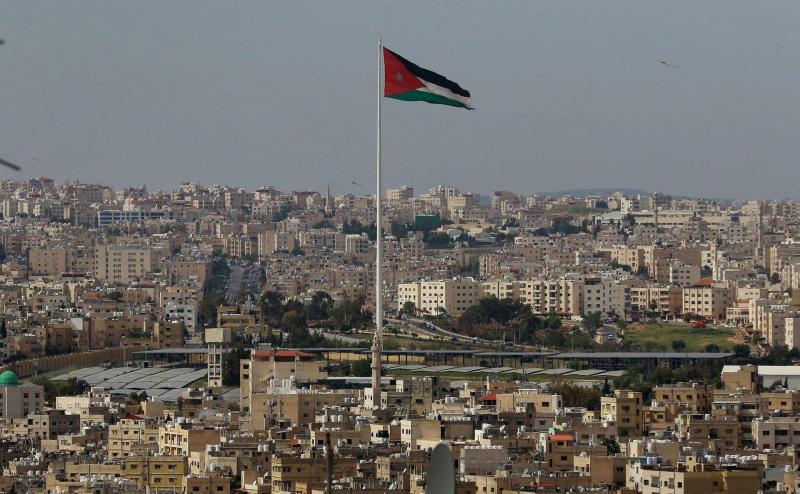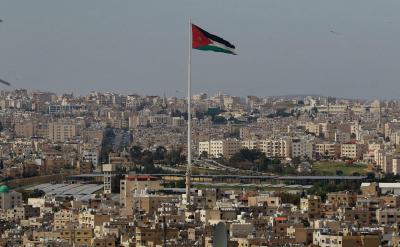The war in Gaza has increasingly placed Jordan in a sensitive position as it navigates the ramifications of the conflict. The kingdom strives to maintain stability and prevent the nightmare scenario of Palestinians being displaced across its borders. At the same time, Jordan attempts to appease its populace, which is boiling with anger against the Israeli operations. Balancing these concerns has proven to be a difficult task. The longer the war between Israel and Hamas persists, the greater Jordan's fears become.
Over 1.8 million Palestinians have been displaced from their homes in Gaza, the highest number since the Nakba of 1948, which led to the establishment of the State of Israel. Fueled by comments from prominent Israeli figures and leaked plans, worries have escalated that Israel intends to forcibly expel Palestinians from Gaza to Egypt, reopening deep scars within the Palestinian psyche. The specter of Palestinian refugees fleeing to the Sinai Peninsula serves as an unsettling prelude to what Jordan fears Israel might do to Palestinians in the occupied West Bank.
King Abdullah of Jordan has repeatedly warned of the consequences of the Gaza war on the region and has refused to accept refugees as a red line. He stated: "No, no refugees in Jordan, no refugees in Egypt," and added this week, "There will be no solution to the Palestinian issue at Jordan's expense." The mass displacement of Palestinians to Jordan could disrupt the delicate demographic balance and weaken national identity, given that more than half of Jordan's population is of Palestinian origin, including 2.2 million registered Palestinian refugees with the UN. The threat of an influx of more refugees poses an existential threat to the country.
Since the most right-wing Israeli government took power last year, the idea of expelling Palestinians from the occupied territories has gained momentum. Israel has begun creating conditions that make it extremely difficult for Palestinians to continue living in the West Bank. While the world focuses on the shocking Palestinian death toll in Gaza, where at least 18,000 have been killed in the last three months, 270 Palestinians have been killed in the West Bank by security forces or Israeli settlers during the same period.
The rise in settler violence in the West Bank since Hamas's attack on Israel on October 7 has heightened Jordan’s concern about a broader conflict that could lead to mass displacement. The Israeli human rights organization B'Tselem stated that Israel has intensified efforts in the West Bank to displace Palestinian communities and seize their land, using the conflict as a pretext. The group noted: "State-backed violence against Palestinians has escalated in both frequency and intensity, with soldiers and police officers fully supporting the attackers and often participating in the assaults."
Oreib Al-Rantawi, founder and director general of the Jerusalem Center for Political Studies based in Amman, stated that Jordan is working hard to prevent a wave of displacement from the West Bank to Jordan. He added: "In response, Jordan could close its borders, deploy forces, and declare a state of emergency. When one state displaces people to another state, it is akin to declaring war."
In 1994, Jordan became the second Arab state after Egypt to sign a peace agreement with Israel. The agreement included a clause prohibiting the forcible displacement of people in a manner that would harm the security of either party. While Al-Rantawi sees a breach of this clause as unlikely at present, he noted that Jordan is working to avoid such a scenario. Indeed, Jordan sent tanks to the border last month as a clear message to Israel that it will not accept the push of Palestinians into its territory.
There are ongoing provocations by Israeli settlers at the Al-Aqsa Mosque in Jerusalem, which is under Jordanian custodianship, with near-daily incursions by settlers accompanied by Israeli police. Jordan has intensified its criticism of Israel, with Foreign Minister Ayman Safadi repeatedly condemning Israel, calling its aggression in Gaza an act of genocide.
Jordan also summoned its ambassador to Israel and requested that the Israeli Ministry of Foreign Affairs instruct its ambassador not to return to Amman. Safadi further stated that Jordan would not renew an agreement to supply Israel with energy in exchange for water, an agreement set to be ratified in October. These actions have partially helped ease public anger, with a recent poll showing that 27% of Jordanians are largely satisfied, and 31% somewhat satisfied with Jordan's stance on the Gaza war.
However, severing ties with Israel does not appear to be an option under consideration by Jordan. Last month, Jordan was among several Arab countries that rejected terminating all diplomatic and economic relations with Israel.




